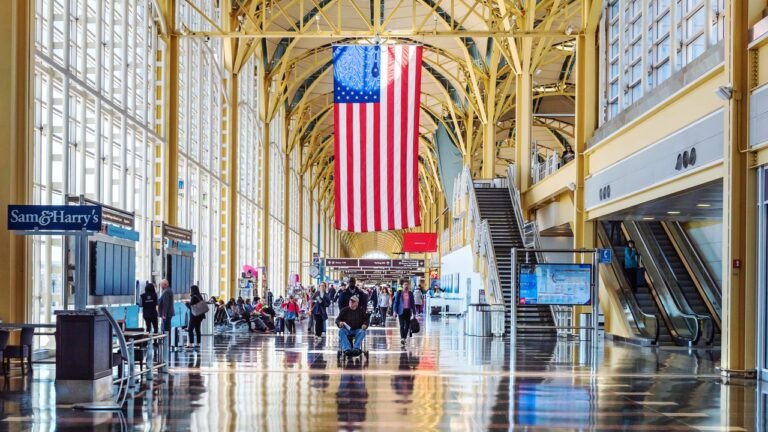Visiting the United States is about to get exorbitantly expensive for certain travelers.
The US State Department has announced the launch of a visa bond pilot program that will require tourists and business travelers from specific countries to pay bonds of either $5,000, $10,000, or $15,000 as part of their visa application process.
Officials published a notice of the 12-month trial program in the Federal Register on Tuesday, August 5. According to the notice, the bonds will apply to visitors from countries with high visa overstay rates or where screening and vetting data for travelers is deemed deficient, as determined by the Department of Homeland Security. However, the official list of countries has yet to be announced.
The notices says that the trial program will be apply to all B1 and B2 visa applicants from a forthcoming list of countries. B1 and B2 visas are for business, tourism, or a combination of both and are typically valid for six months to one year. The B1 and B2 visas were selected for the pilot because their admission period to the US will be concluded within the one-year pilot “allowing for data collection at all stages of the process,” according to the notice. For now, the bonds in the pilot program won’t apply to student visas, which can be valid for several years, or other visa types.
The bond amount each visa applicant will be required to post will be “based upon the applicant’s circumstances as determined by the consular officer but in an amount of no less than $5,000, unless the bond requirement is waived,” the notice states. Guidance in the documents show that consular officers will be advised to set the bond at $10,000 in most cases.
Officials say that the program’s list of countries will be released on the State Department’s website when the bonds take effect in late August. After the initial list is published, countries could be added or removed on a rolling basis. The notice states that more than 500,000 travelers are suspected to have overstayed their US visas in 2023, according to DHS data.
Travelers who comply with all the terms of their visas—including departing the US on time and not accepting unauthorized employment—will have their bonds refunded. On the other hand, travelers who breach their visa terms will forfeit the bond amount. Visa applicants will receive a State Department email to the address provided on their application with the link to post their bond amount via the US Treasury’s Pay.Gov service.
Visitors from the 42 countries with which the US has a visa waiver agreement would automatically be exempt from the bond program, as they do not need an entry visa for stays of 90 days or less. The new bond payments will apply to all B1 and B2 visas for the listed countries.
The visa bond program is scheduled to take effect 15 days after being published in the Federal Register, which would be August 20, 2025. When the initiative launches, travelers subject to the bonds will only be allowed to travel in and out of specific US airports that participate in the program, according to the federal notice. Airports will be chosen for the program “based on their capacity to automatically confirm” that travelers have left the US, which likely means hubs with facial recognition technology at the Customs and Immigration checkpoint. The list of airports will be announced 15 days before the program launches and can be updated on a rolling basis.
Visa bond policies have been proposed by federal officials numerous times, including by the first Trump administration. However, past policies have always been deemed too complicated and cumbersome to realistically execute. The goal of this pilot program, the federal notice states, is to assess whether visa bonds are feasible on an ongoing basis.
The bond program’s announcement comes as the US also plans to begin charging some travelers a $250 “visa integrity” fee. That fee, which is set to debut by the end of the year, will apply to all non-immigrant visa applicants and could also potentially be refunded to travelers who comply with the terms of their visas.
